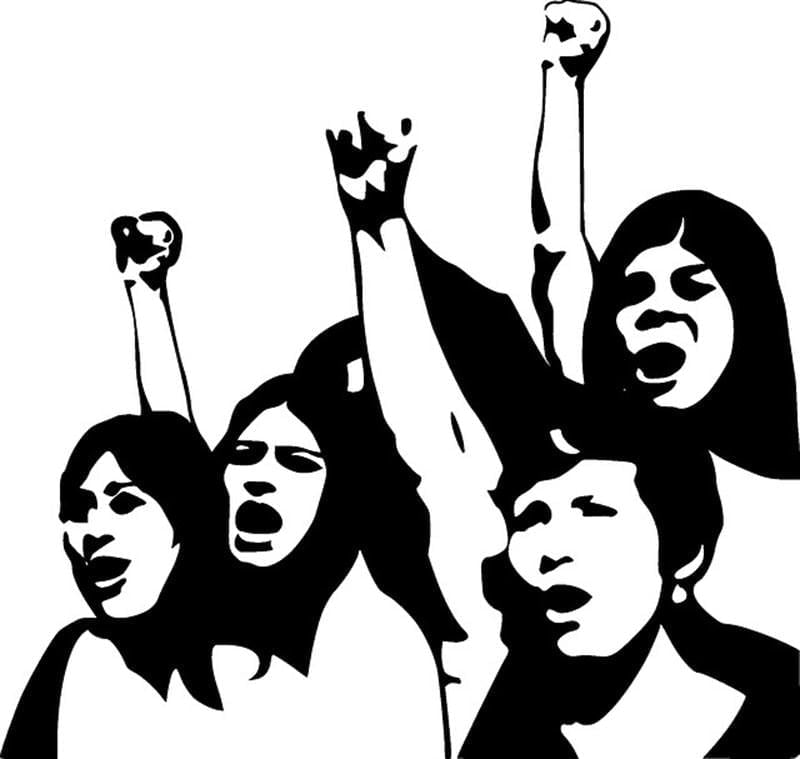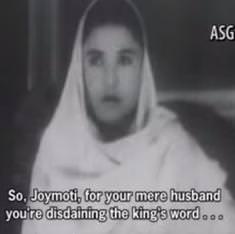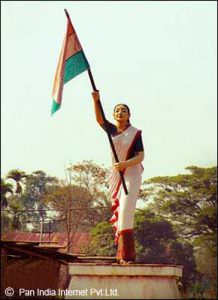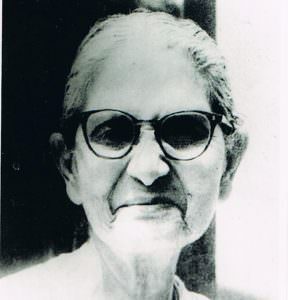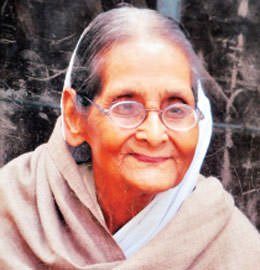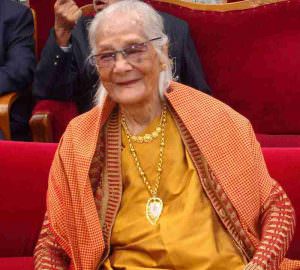Talking about feminism makes us resort to the different phases of feminism and how there have been different leaders leading through those phases. Discussions on feminism cannot exist without the mention of Sylvia Plath or Simone De Beauvoir. If we are talking about feminists in India, then the discussion is surrounded around Bina Agarwal, Uma Chakravarty and so on. What we don’t talk or know about are feminists and women leaders from the North East. The North East has been marginalised to such an extent that we hardly know anything about it. Here are a few North Eastern women leaders who have championed the cause for women.
1. Sati Joymoti
Joymoti was an Ahom princess and later became Queen to King Gadadhar (Gadapani/Supaatpha) Singha. Her self sacrifice for her kingdom and her husband is well known in Assam. To establish a kingdom free from corruption, oppression and inefficient administration, she sacrificed her life in the hands of Lora Roja (Sulikphaa). She faced continuous inhumane physical torture in Jareng Pathar (Jareng field) of Sivasagar district of Assam after being tied to Kotkora Gos (a thorny plant).
Despite being tortured Joymoti didn’t reveal the whereabouts of her husband. She tried protecting her husband and her kingdom till her last breath. Her devotion to her husband and kingdom gave her the title of Sati. She tried to save her kingdom and people from the atrocities of Sulikphaa. She soon became an icon for bravery. Her selfless sacrifice, patriotism, courage, truthfulness and pride makes her a hero in Assamese history. Sati Joymoti Divas (Commemoration Day of Sati) is held in Assam on every 27th March.
2. Kanaklata Baruah
Kanaklata Baruah was one of the Assamese leaders in the Indian Independence Movement. She was a part of Quit India Movement and fought fearlessly against the British. As a part of the Mrityu Bahini (Death Squad) she led the protest procession in Gohpur police station with other leaders to hoist Indian flag on the top of police station as a mark of freedom struggle against the British rule. She led the women’s procession and walked ahead towards the police station with the Indian flag. While she was proceeding towards the police station, she was shot by the police.
Hailing from the prestigious and conservative Dolakharia Barua family, Kanaklata died at the minor age of 17 years. She had faced hard times since her childhood as she became an orphan at the age of 5. She independently took charge of her siblings and the household. Finally, she became a part of Indian freedom struggle and fought for her country. She was not only a strong leader but a strong woman in her personal life as well. She became a martyr at a very young age and remains an inspiration for all Indian women.
Also Read: Six Women’s Movements From The North East That You Should Know Of
3. Chandraprabha Saikiani
From being a writer, to a teacher, to a social reformer and women’s rights activist, the contributions of Chandraprabha Saikiani are immense. She was the founder of Assam Pradeshik Mahila Samiti in 1926. She stood up for women’s and girls’ education since a very young age. During the Assam session of the Asom/Axom (Assam) Chhatra (Students) Sanmilan in 1918, she spoke about the ill effects of opium consumption and demanded for its ban. She was always against caste discrimination and attacked it through the teachings of Srimanta Sankardev. She claimed the entry of women in religious places and rituals. She also became a part of the National Non-Cooperation Movement and took part in the Indian freedom struggle.
In 1925 at the Nagaon session of Assam Sahitya Sabha, she gave a fiery speech on gender equality and justice and protested against keeping women in a barricade from men. Her speech enabled women’s mobilisation. By establishing the Assam Pradeshik Mahila Samiti in 1926, she voiced out her rage against patriarchal oppression like child marriage and supported women’s education and self employment. In her personal life, she revolted against her marriage to an old man at a young age and later got engaged to Dandinath Kalita, a writer.
Kalita however, got married to another woman, leaving Chandraprabha pregnant with their child. Chandraprabha sustained all stigma of being an unmarried single mother yet she brought up her child. Her experiences also inspired her to fight for widows’ rights, single mothers and break women’s oppression. She breathed her last on her birthday, 16 March, 1972 thus losing a battle against cancer. This Padma Shri recipient stands as a role model for women’s rights activists and women everywhere.
4. Mina Agarwala
Mina Agarwala was an important figure in the Tezpur Mahila Samity for more than 50 years. Inspired by Chandraprabha Saikiani, she worked for women rights throughout her life. She was the President of the District Social Welfare Board in the 1950s. Her work with rural women is impeccable. She was a strong youth mobiliser and mobilised women to welcome Tibetan refugees and helped them from the hands of Chinese atrocities in 1959.
In 1962 she and her team worked enormously and raised fund for National Defence Fund against Chinese aggression. Her works were not only for the women of her community. She also spoke for Muslim women’s rights and stood against Triple Talaq, Mehr and inefficient maintenance. She widely advocated for women’s education, especially rural women’s education. Mina Agarwala passed away on 24th July 2014, leaving behind the legacy of her works.
5. Silverine Swer
Silverine Swer was a social worker from the state of Meghalaya. Her contribution to social work for young girls is immense. She was the first Khasi woman to become trainer and adviser of the Girls Guide Movement, the movement which became her life long passion later. She was appointed as the Assistant Controller of Rationing during World War II. Her contributions to the academic field is vast. She was initially a faculty member and later the Principal of Teachers’ Training Institute in Changlang Tirap.
Silverine retired in 1968. She was also Chief Social Education Organizer in Arunachal Pradesh for 15 years. After her retirement, her work in the social sector didn’t stop. She was closely associated with various women’s voluntary social welfare organisations and educational institutions. She held various positions like Chairman of State Social Welfare Advisory Board, State Commissioner (Guides), Chairman of International Year For Women and advised several social bodies. Swer had studied in Scottish Church College, Kolkata. Her works for the tribal women in Meghalaya are quite extensive. She passed away on February 1, 2014, at the age of 103 after her long contribution to social work .
All these women stand as role models for all feminists. Their works are rarely known amongst mainstream Indian feminism, yet their stories also inspire women to fight for their causes. We should thank these women leaders for making the North East a region where gender discrimination is lesser, thereby enabling an environment of peace and tranquility.
Also Read: Irom Sharmila, AFSPA And The Quest For Freedom In Manipur
About the author(s)
Presently pursuing MA in Women's Studies and trying to explore the field of 'Gender and Media'. Strongly interested in writing since childhood.
